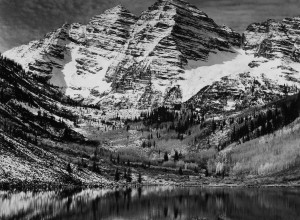October 2010 |
Homer on the Range
It is the hour before dawn.
Microbursts of Arctic air dance crazily at the edges of a campfire where a handful of raw men sip coffee. One of the men, taller than the rest, rises and clears his throat. His voice is cracked from years of dust and heat and whiskey, but in the silence of vast unpeopled miles, it carries like the voice of some ancient prophet:
...We'd come jogging
To town with jingle in our jeans,
And in the wild night we'd be bogging
Up to our hats in last month's dreams.
It seemed the night could barely hold us
With all those spirits to embold' us
While, horses waiting on three legs,
We'd drain the night down to the dregs.
And just before beyond redemption
We'd gather back to what we were.
We'd leave the money left us there
And head our horses for the wagon.
But in the ruckus, in the whirl,
We were the wolves of all the world....
Microbursts of Arctic air dance crazily at the edges of a campfire where a handful of raw men sip coffee. One of the men, taller than the rest, rises and clears his throat. His voice is cracked from years of dust and heat and whiskey, but in the silence of vast unpeopled miles, it carries like the voice of some ancient prophet:
...We'd come jogging
To town with jingle in our jeans,
And in the wild night we'd be bogging
Up to our hats in last month's dreams.
It seemed the night could barely hold us
With all those spirits to embold' us
While, horses waiting on three legs,
We'd drain the night down to the dregs.
And just before beyond redemption
We'd gather back to what we were.
We'd leave the money left us there
And head our horses for the wagon.
But in the ruckus, in the whirl,
We were the wolves of all the world....
While I made up the setting, the poetry is very real. Penned by cowboy poet Buck Ramsey, And As I Rode Out One Morning is considered a classic of its type. Its stanza scheme (derived from the poetry of Alexander Pushkin) gives lie to the notion that cowboy poetry is an oxymoron.
As David Stanley (co-editor of the volume depicted to your left) points out, cowboy poetry can be traced all the way back to post-Civil War trail drives. Its roots are as various as what cowboys with time on their hands managed to read, or listen to, or remember--snippets of Victorian poetry recalled from whatever primary school a cowpoke may once have attended; sea chants and music hall tunes and the tales of Shakespeare and Homer; hymns and dime novels and the poetry of fellows like Tennyson and Longfellow and Poe. But it is in the constant appropriation of Spanish terms like buckaroo and chaps, lariat and quirt, that the lived experience of the range is perhaps most strongly reflected.
Because cowboy poetry has long been primarily an oral tradition, book collectors have long had much more success obtaining recordings of such poetry than books about it. It is largely the success of the National Cowboy Poetry Gathering that has begun to drive book publishing in this area:
Some journalists say it's the most honest and open-hearted festival in America. Ranchers say these few days contain the highest concentration of lies in any one place at any one time. Twenty years ago, Glamour Magazine said it was one of the best ten places in America for a woman to find a real catch....
Although the first such gathering can be traced to
Book collectors will find that compilations of cowboy poetry include poems by women, by Native Americans and vaqueros and charros, by paniolos and guachos, by drovers from Australia and aduuchid from Mongolia. Book collectors will find that such poetry continues to reflect lived experience--the cattle and gunfights and bar brawls of yore have given way to bison and emu and ostriches; to concerns about suburban sprawl and falling water supplies and damage from mining and logging; to ATVs and GPS and other technologies of the thoroughly modern cowpoke.
Above all, though, cowboy poetry remains a poetry of the land. Of the people of who live on the land ... who work the land ... who die on the land. Of people who fear that their children, and their children's children, will one day no longer have that right, or that privilege, or that honor. Buck Ramsey:
...We were the native strangers there
Among the things the land was growing--
To know this gave us more the care
To let the grass keep at its growing
And let the streams keep at their flowing.
We knew the land would not be ours,
That no one has the awful pow'rs
To claim the vast and common nesting,
To own the life that gave him birth,
Much less to rape his mother earth
And ask her for a mother's blessing
And ever live in peace with her,
And, dying, come to rest with her....
As David Stanley (co-editor of the volume depicted to your left) points out, cowboy poetry can be traced all the way back to post-Civil War trail drives. Its roots are as various as what cowboys with time on their hands managed to read, or listen to, or remember--snippets of Victorian poetry recalled from whatever primary school a cowpoke may once have attended; sea chants and music hall tunes and the tales of Shakespeare and Homer; hymns and dime novels and the poetry of fellows like Tennyson and Longfellow and Poe. But it is in the constant appropriation of Spanish terms like buckaroo and chaps, lariat and quirt, that the lived experience of the range is perhaps most strongly reflected.
Because cowboy poetry has long been primarily an oral tradition, book collectors have long had much more success obtaining recordings of such poetry than books about it. It is largely the success of the National Cowboy Poetry Gathering that has begun to drive book publishing in this area:
Some journalists say it's the most honest and open-hearted festival in America. Ranchers say these few days contain the highest concentration of lies in any one place at any one time. Twenty years ago, Glamour Magazine said it was one of the best ten places in America for a woman to find a real catch....
Although the first such gathering can be traced to
Book collectors will find that compilations of cowboy poetry include poems by women, by Native Americans and vaqueros and charros, by paniolos and guachos, by drovers from Australia and aduuchid from Mongolia. Book collectors will find that such poetry continues to reflect lived experience--the cattle and gunfights and bar brawls of yore have given way to bison and emu and ostriches; to concerns about suburban sprawl and falling water supplies and damage from mining and logging; to ATVs and GPS and other technologies of the thoroughly modern cowpoke.
Above all, though, cowboy poetry remains a poetry of the land. Of the people of who live on the land ... who work the land ... who die on the land. Of people who fear that their children, and their children's children, will one day no longer have that right, or that privilege, or that honor. Buck Ramsey:
...We were the native strangers there
Among the things the land was growing--
To know this gave us more the care
To let the grass keep at its growing
And let the streams keep at their flowing.
We knew the land would not be ours,
That no one has the awful pow'rs
To claim the vast and common nesting,
To own the life that gave him birth,
Much less to rape his mother earth
And ask her for a mother's blessing
And ever live in peace with her,
And, dying, come to rest with her....














